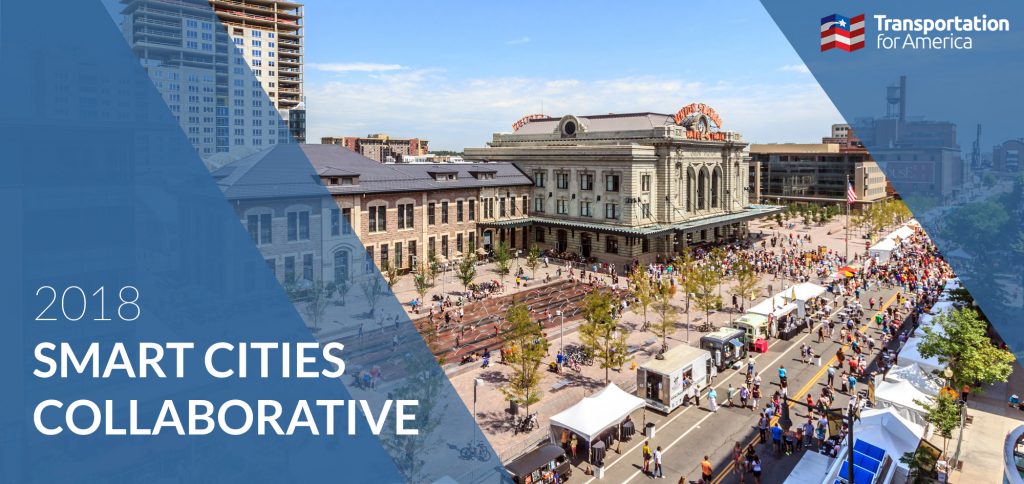Houston will join 21 other cities in a national partnership aimed at addressing persistent transportation challenges as technology and mobility choices have planners rethinking how streets, sidewalks and private spaces interact.
The upcoming Smart Cities Collaborative, organized by the Transportation For America advocacy group, will last for a year and include four gatherings of the cities selected. They will focus on the topic areas of “ride-sourcing technology, curbside delivery, dockless bike and scooter systems, and the increasing desirability of sidewalk space and some of the hottest real estate in cities.”
[…]
Houston’s participation will involve its public works and parking management departments. The goal, officials said, is to build on current projects such as the city’s flood warning and traffic management systems, while readying Houston for increased transit and vehicles that drive themselves.
“The big matzo ball hanging out there is automated vehicles,” said Russell Brooks, director of Transportation For America’s Smart Cities Initiative.
To handle self-driving cars, cities will need to rethink how streets operate, with traffic devices that could relay information to vehicles and protect pedestrians. Autonomous cars also are expected to upend parking in job centers such as downtown Houston, the Texas Medical Center and Energy Corridor, while perhaps increasing the need for electric charging stations.
Here’s a report from the first meeting, which happened last week, and a Transportation for America blog post about the collaborative. The next meeting will be in July. I figure it’s never a bad idea to talk about transportation solutions, because we sure could use them.


Is private business wanting public money to make their technology a viable business model? If redesigning downtown houston for better transportation is the goal, make everyone park at the beltway and take rail into the city, no more cars in downtown means no more parking decks, or spaces, or stop lights. This would free up a lot of space and high dollar real estate. What happens to a driver less car in Houston rush hour traffic downtown? It turns into a Decepticon.